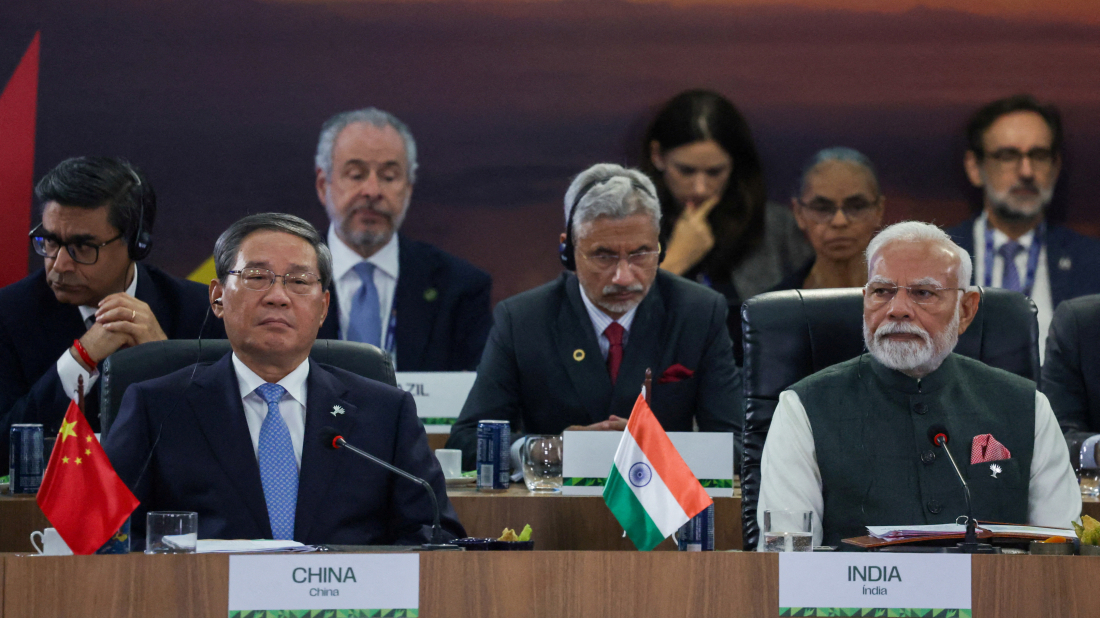Death toll from Brazil floods rises to 46 as rescue efforts continue
The death toll from heavy rains and flooding in Brazil’s Minas Gerais state has risen to 46, authorities said, with 21 people still reported missing...

India and China have resumed direct commercial flights for the first time in five years, marking a cautious thaw in relations between the two Asian giants.
The new development comes after years of diplomatic and military tensions peaking in the year 2020.
The move signals a gradual normalisation of exchanges as both nations seek to stabilise ties amid shifting global trade dynamics and rising friction with the United States.
The first flight between New Delhi and Shanghai took off on Sunday, operated by Air India, with Chinese carriers expected to follow in the coming weeks.
The resumption ends a suspension that began in 2020, when both sides halted direct routes amid the COVID-19 pandemic and a sharp deterioration in bilateral relations following deadly border clashes in the Galwan Valley.
The freeze in direct air links had become a symbol of the deep chill in China-India relations, which extended beyond the battlefield to trade and diplomatic engagement.
Officials in New Delhi described the decision as a “measured step” toward restoring normal travel and business exchanges, emphasising that the move does not signal the resolution of all outstanding issues but reflects a willingness to re-engage.
Beijing’s foreign ministry also welcomed the restart, calling it “a positive development that serves the interests of both peoples and economies.”
The renewed air connectivity comes at a time when India’s relations with the United States, one of its key strategic and trade partners, have faced fresh strains.
U.S. President Donald Trump recently announced sweeping 50 per cent tariffs on a range of Indian exports, including steel, pharmaceuticals, and textiles, citing trade imbalances and market access concerns.
The unexpected move has prompted New Delhi to diversify its partnerships, with analysts suggesting that warming ties with Beijing may offer both economic relief and geopolitical balance.
Before the suspension, India and China had multiple direct flights linking major cities such as Delhi, Mumbai, Beijing, and Guangzhou, facilitating business travel and tourism.
The restoration is expected to benefit airlines, traders, and students, many of whom have faced years of limited connectivity and cumbersome transit routes through third countries.
Despite the progress, both governments remain cautious. Border tensions in the Himalayas persist, and India continues to restrict Chinese investment in sensitive sectors such as telecommunications and infrastructure.
However, trade between the two countries has continued to grow, with China remaining one of India’s largest suppliers of electronics, machinery, and raw materials.
Analysts view the resumption of flights as part of a trend toward pragmatic engagement.
With global economic uncertainty rising and supply chains shifting, both Beijing and New Delhi appear to recognise the need to manage their rivalry while pursuing shared interests.
The skies reopening between the two nations, though largely symbolic, may mark the first step in a slow and deliberate process of rebuilding trust after years of turbulence.
The Taliban in Kabul has rejected Russian claims that more than 23,000 militants from around 20 international terror groups are currently operating within Afghanistan.
Four years after Russia launched its full-scale invasion of Ukraine on 24 February 2022, the war is no longer defined by shock but by scale.
Seven people were killed after gunmen ambushed a police patrol in Kohat, a district in Pakistan’s north-west near the Afghan border, on Tuesday, in an attack that comes amid rising militant violence and heightened tensions between Pakistan and Afghanistan.
Four years into Russia’s invasion of Ukraine, the war can be measured not only in lives and territory, but in money. In Part One, the war’s cost was measured in casualties and kilometres. In Part Two, it is measured in billions of dollars.
Thailand and the United States, alongside 28 partner nations, began Southeast Asia’s largest and longest-running military exercise, the 45th Cobra Gold, on Tuesday (24 February) in Rayong province, Thailand.
The death toll from heavy rains and flooding in Brazil’s Minas Gerais state has risen to 46, authorities said, with 21 people still reported missing. The storms triggered landslides and widespread flooding, displacing thousands across Juiz de Fora and Uba.
Venezuela’s Attorney General Tarek William Saab and Ombudsman Alfredo Ruiz tendered their resignations to the National Assembly on Wednesday. Neither official has publicly provided reasons for stepping down.
Four people aboard a U.S.-registered speedboat, flagged in Florida, were killed and six others wounded on Wednesday after the vessel entered Cuban territorial waters and fired on Cuban border patrol forces, Cuba’s Ministry of the Interior (MININT) reported.
The U.S. Treasury Department imposed sanctions on Wednesday (25 February) on more than 30 individuals, entities and "shadow fleet" vessels it said enabled Iran's illicit petroleum sales, ballistic missiles and weapons production.
U.S. President Donald Trump’s latest State of the Union address set out a second-term agenda built on economic protectionism, military strength and a hard line on Iran, signalling a strategy that pairs diplomatic engagement with firm red lines, Assoc. Prof. Orkhan Valiyev told AnewZ Daybreak.
You can download the AnewZ application from Play Store and the App Store.

What is your opinion on this topic?
Leave the first comment